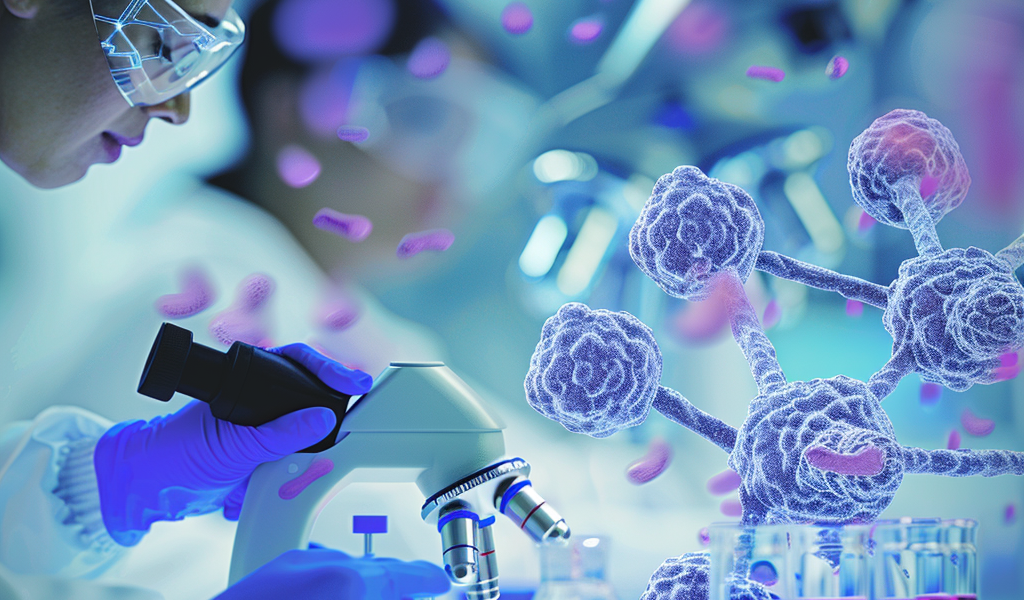In a groundbreaking study led by researchers at NYU Langone Health and its Perlmutter Cancer Center, a new biologic drug has been developed that specifically targets a mutant form of the cancer-causing protein HER2 (human epidermal growth factor receptor 2). This innovative approach holds promise for creating effective cancer treatments with minimal side effects, a significant advancement in the field of oncology.
HER2 is a protein found on the surface of many cell types and plays a crucial role in regulating cell growth. However, when a single amino acid mutation occurs in the HER2 protein, it can lead to uncontrolled cell division and cancer. Traditional treatments often struggle to differentiate between the mutant and normal versions of HER2, risking damage to healthy cells.
Lead author Shohei Koide, PhD, a professor in the Department of Biochemistry and Molecular Pharmacology at NYU Grossman School of Medicine, explained, “We set out to make an antibody that can recognize a single change in the 600 amino acid building blocks that make up the exposed part of the HER2 protein, which conventional wisdom says is very difficult. The fact that we were able to detect the difference of a single amino acid so cleanly was a surprise.” This breakthrough could pave the way for targeted therapies that specifically address HER2 mutations without adversely affecting normal cells.
The study reveals that the researchers successfully engineered a monoclonal antibody that selectively binds to the mutated HER2 protein, inhibiting its activity while leaving the normal version intact. This specificity is crucial, as it minimizes the risk of side effects that are often associated with broader cancer therapies that do not discriminate between healthy and cancerous cells.
Current treatment options for patients with HER2 mutations typically involve a combination of chemotherapy and targeted therapies, which can lead to a range of side effects due to their impact on healthy tissues. The newly developed biologic could provide a more refined approach, potentially improving the quality of life for patients undergoing cancer treatment.
The implications of this research extend beyond HER2 mutations. The methodology used to create this biologic could be adapted to target other cancer-related proteins that also exhibit slight mutations. This adaptability highlights the potential for a new class of therapies that can address a variety of cancers with precision.
As the study progresses, the researchers aim to conduct further tests to evaluate the efficacy and safety of the new biologic in clinical settings. The hope is to translate these laboratory findings into real-world treatments that can significantly improve outcomes for cancer patients.
The development of this targeted therapy aligns with the growing trend in cancer treatment towards personalized medicine, where therapies are tailored to the unique genetic makeup of an individual’s cancer. By focusing on the specific mutations present in a patient’s tumor, healthcare providers can select the most effective treatment options, reducing the trial-and-error approach that often characterizes cancer care.
In summary, the research conducted at NYU Langone Health and Perlmutter Cancer Center represents a significant step forward in the fight against cancer. The ability to target mutant proteins like HER2 with high specificity could revolutionize treatment protocols, offering hope for patients facing challenging diagnoses. As this research continues to evolve, it may lead to the development of new therapies that not only enhance treatment efficacy but also improve the overall patient experience.





